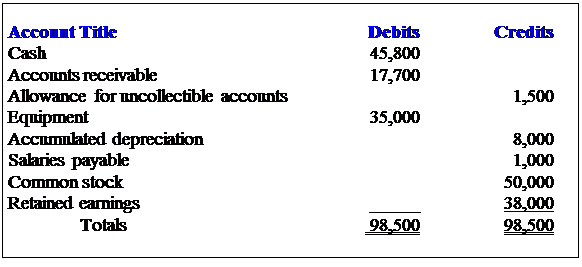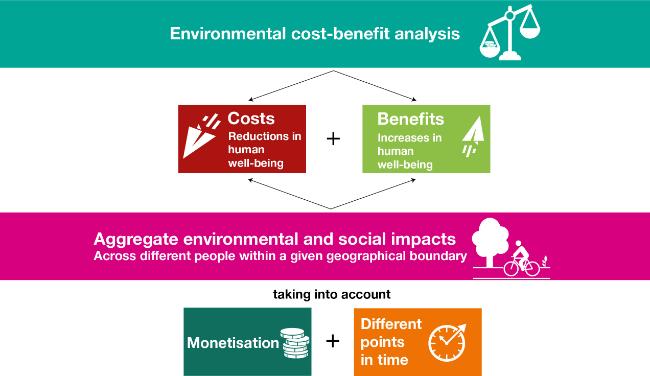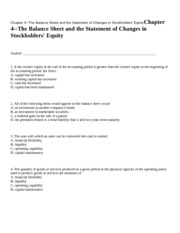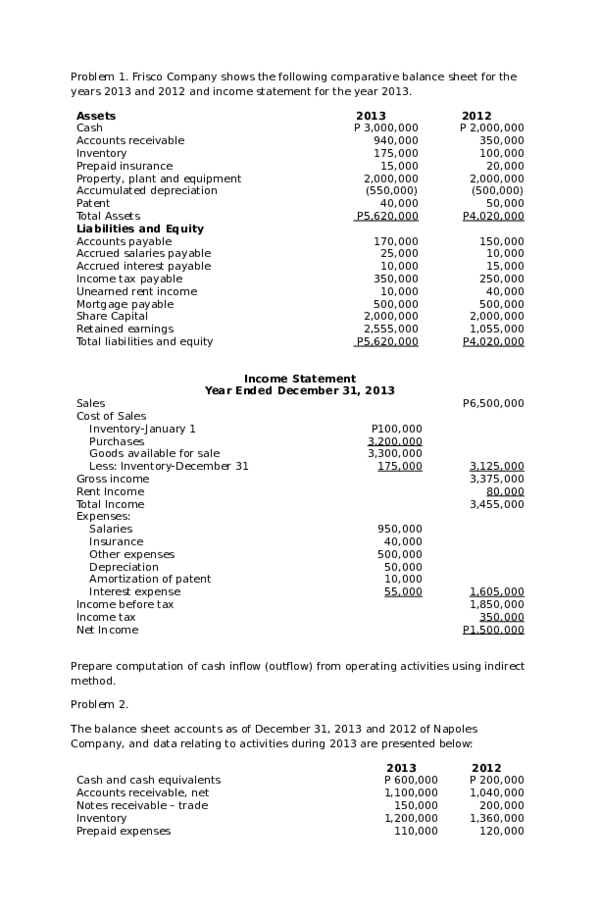
They are also responsible for formulating recommendations and creating drafts of documents for consideration by the Board members. International Financial Reporting Standards (IFRS), the accounting standards established by the IASB, are followed by almost 110 countries. The FASB is an active contributor to the development and creation of the IFRS, along with maintaining GAAP, its own accounting standards.
So, the FASB was set up in 1973 using a new model that focused on independence and transparency. Its seven-member board is made up of people with different backgrounds and skills. In general, the FASB collaborates closely with other accounting bodies to make sure that accounting rules are current, uniform, and applicable to the current business climate. Together, the FASB and other organizations make sure that debtors, investors, and other interested parties have access to trustworthy financial data.
It’s still important for them to be transparent and provide accurate financial information. This information can be used by donors to make decisions about where to donate their money. Together these institutions preserve financial and accounting accuracy, provide educational information, improve financial standards, and create reporting standards for the government. All FASB oversight, including budgets, is monitored and handled by the FAF. While the FASB has the authority to create and alter industry standards, the SEC watches over the FASB for any problems or technical issues. Members of the FAF are also responsible for appointing board members to the FASB.
FASB Member Selection Process
The Financial Accounting Standards Board bears responsibility for establishing generally accepted accounting principles (GAAP) for the private sector. Additionally, the FASB belongs to the International Accounting Standards Board (IASB). The IASB is the body in charge of establishing international accounting standards, and it collaborates closely with the FASB to guarantee uniformity in those standards across various nations. Additionally, to make sure that municipal organizations adhere to the proper accounting standards, the FASB collaborates with the Governmental Accounting Standards Board (GASB).

Seeking opinions from not only big corporations but also small businesses, investors, academics, and government entities would result in more complete and comprehensive standards. Involving others would result in more people accepting and utilizing these standards across industries. In short, the FASB’s arrival was a big moment in financial reporting regulation. Its development shows commitment to increasing financial transparency across industries and keeping public trust by giving reliable information for decision-making. Investors must be given details about a company’s earnings and liabilities in the capital markets. Companies are now bound to disclose the information necessary for the clients, even if it isn’t always the most pertinent information, thanks to a recent FASB shift.
This includes extensive research, gathering opinions from different groups, and releasing new standards or updates as needed. The EITF helps reduce the FASB’s need to spend time and effort on certain issues like applications or other emerging concerns that are addressed within GAAP. INAA is an International Association of Independent Accounting firms, established over 25 years ago to facilitate cross-border business.
GAAP serves as the framework for how financial statements are prepared and presented, ensuring consistency, comparability, and transparency in financial reporting. Since 1973, the Financial Accounting Standards Board (FASB) has been the designated private sector for establishing standards of financial accounting that govern the preparation of financial reports for nongovernmental entities. The purpose of the FASB is to improve standards of financial accounting and reporting for nongovernmental entities. The standards are officially recognized by the Securities and Exchange Commission (SEC) and the American Institute of Certified Public Accountants (AICPA) as authoritative. The FASB is part of a structure that is independent of all other business and professional organizations.
For the sake of the users, international convergence will continue to progress over the course of time. There are a lot of factors that go into proper accounting and finance operations. As we stated previously, having finance reports and accounting practices that follow FASB guidelines is a must regardless of your business’s size, stage, or revenue. The earlier you focus on FASB and GAAP compliance, the easier it will be to scale quickly and secure investors to support your endeavor. FASB accomplishes its mission through a comprehensive due process that involves soliciting public input, conducting research, deliberating, and issuing Accounting Standards Updates (ASUs). These updates become part of the GAAP framework and are followed by companies to prepare their financial statements.
FASB proposes amendments to classification of debt that would bring US GAAP and IFRSs closer together
In recent years, the FASB has adopted an accounting standards strategy that is founded on several distinct principles. This strategy is predicated on the notion that accounting standards ought to be founded on overarching principles as opposed to detailed regulations. With this strategy, the FASB has created a collection of general guidelines that businesses must adhere to when presenting their financial results. Objectivity, accurate depiction, materiality, comparability, and consistency are some of these guiding concepts. This can help to ensure that non-profit organizations are using donations with integrity.
The FAF is responsible for the oversight, administration, financing, and appointing of members for both the FASB and the Governmental Accounting Standards Board (GASB). Here at INAA, we are committed to being a part of the worldwide accountancy conversation. We aim to connect accounting firms who strive to deliver quality professional services around a shared vision to make global business personal and take personal business global. In capital markets, it is necessary for investors to receive information surrounding a company’s profits and losses.
Related Publications
The FASB’s dedication to upholding high-quality standards assists investors with making educated choices. It is noteworthy that while the FASB governs public companies in the US, they don’t have control over private companies or non-profit organizations. In spite of this, many private companies still choose to follow GAAP for better trustworthiness and similarity in financial reporting. The primary users of the FASB standards are publicly traded companies and investors.
- Nonprofits typically use GAAP, or Generally Accepted Accounting Principles.
- The agreement has undergone several changes due to difficulties and disagreements surfacing between the IASB and FASB Boards.
- GAAP is a set of standards that companies, nonprofits, and governments should follow when preparing and presenting their financial statements, including any related party transactions.
- By facing up to challenges caused by cryptocurrencies, blockchain technology, and artificial intelligence, the FASB can make sure its regulations are significant and adjustable.
Through Open Sourced Workplace, he fosters collaboration among HR, facilities management, technology, and real estate professionals, providing valuable insights and resources. As a speaker and contributor to various publications, Steve remains dedicated to staying at the forefront of workplace innovation, helping organizations thrive in today’s dynamic work environment. The disclosure principle, which gives a business the right to publicize its specifics and structure of expenses accrued in the year, is an example of a recently formed accounting principle.
Recording of the fireside chat featuring the IASB Chair and the FASB Chair
An example of a newly created accounting principle is the disclosure principle, which gives a company the right to publicize its details and structure of costs incurred in the year. Both FASB and the International Accounting Standards Board (IASB) have a broad mission in overseeing businesses with regard to financial reporting. FASB is in charge of devising or changing standards that are meant to improve the reliability of financial data by eliminating factors that distort reported information.

Through its Codification of Accounting Standards, the FASB often provides advice on accounting-related matters. The FASB was created in 1973, when it replaced the Federal Accounting Standards Advisory Council. It’s worth noting that the FASB does not issue regulations, but issues statements of financial accounting standards. The International Accounting Standards Board (IASB) and the Financial Accounting Standards Board (FASB) are independent, private-sector bodies working to develop and enforce financial reporting standards for publicly-held companies. Collectively, they work to improve financial reporting within the U.S. while also enabling and educating stakeholders on reading and understanding the accounting standards.
The advantage of the accounting industry creating the rules, instead of Congress, is that rule-making is less of a political give-and-take and more based on logic and professional opinion. The short-term convergence is an active agenda project conducted jointly by FASB and IASB — expected to result What is fasb in one or more standards that will achieve convergence in certain areas. The project is limited to the differences between US GAAP and IFRS, where a high-quality solution seems achievable. Pilot is a provider of back-office services, including bookkeeping, controller services, and CFO services.
Zeni offers AI-backed bookkeeping and accounting for startups, backed by human touch. Our financial experts will work with you to find the best solution for your bookkeeping and accounting needs. Someone on our team will connect you with a financial professional in our network holding the correct designation and expertise. Our mission is to empower readers with the most factual and reliable financial information possible to help them make informed decisions for their individual needs. At Finance Strategists, we partner with financial experts to ensure the accuracy of our financial content. In conclusion, the Financial Accounting Standards Board was created by Congress by passing the Securities Exchange Act of 1934, which allowed the SEC to have full authority over Generally Accepted Accounting Principles.

The FASB is a private, non-governmental division that’s owned and funded by the US Securities and Exchange Commission. While also a private company, the IASB receives its funding through private donors and corporations. Additionally, the FASB board members mainly work and reside in the United States, while the IASB board members live and work in several nations around the world. Pilot provides bookkeeping, CFO, and tax services for literally thousands of startups and growing businesses.
Role of FASB
Many countries have adopted or converged their accounting standards with the International Financial Reporting Standards (IFRS), which were influenced by FASB’s GAAP. As a result, FASB’s work has a global impact on financial reporting and transparency. The FASB develops accounting standards through a transparent and collaborative process that involves input from a wide range of stakeholders, including investors, auditors, academics, and industry experts. The FASB’s due process includes extensive research, public comment periods, and deliberation by its board members before issuing authoritative guidance.
However, there are still some differences between US GAAP and International Financial Reporting Standards (IFRS). It is the goal of the principles-based strategy to accounting standards to give businesses more freedom in how they present their financial outcomes. This strategy aims to simplify accounting principles and make financial records simpler to read and comprehend. Additionally, it pushes businesses to depend less on prescriptive guidelines and more on their own judgment when preparing their financial statements.
